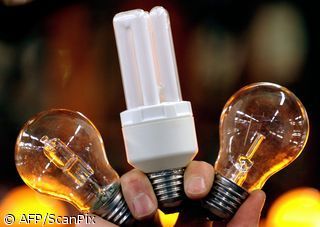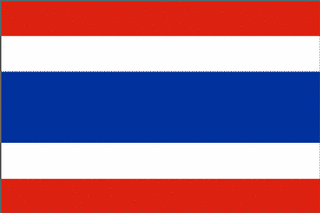OLAF and Europol strengthen cooperation in combating financial crime
Published:
9 April 2004 y., Friday
OLAF - The European Anti-fraud Office - and Europol - the European Police Office - shall sign an administrative arrangement putting in place the modalities for their practical co-operation.
Mr Jürgen Storbeck, Europol's Director and Mr Franz-Hermann Brüner, Director General of OLAF shall tomorrow, in Brussels, sign an administrative arrangement regarding co-operation between Europol and OLAF in order to fight fraud, corruption or any other criminal offence or illegal activity in the framework of international organised crime affecting the European Community's financial interests.
In order to step up the fight against fraud, corruption and any other illegal activity affecting the financial interests of the European Community, the European Anti-Fraud Office established by Commission Decision 1999/352/EC, ECSC, Euratom exercises the powers of investigation conferred on the Commission by the Community rules and Regulations and agreements in force in those areas.
The Office provides the Member States with assistance from the Commission in organising close and regular cooperation between their competent authorities in order to coordinate their activities for the purpose of protecting the European Community's financial interests against fraud.
The Treaty of the European Union mentions (art. 29 and 30) Europol as an important instrument of the Union's efforts to prevent and fight against organised crime in order to achieve the objective of providing its citizens with a high level of safety within an area of freedom, security and justice. Europol aims to improve the effectiveness and co operation between the competent authorities of the Member States in preventing and combating serious international organised crime. The mission of Europol is to make a significant contribution to the European Union's law enforcement action against organised crime, with an emphasis on targeting criminal organisations.
Based in The Hague, The Netherlands, Europol started limited operations on 3 January 1994 in the form of the Europol Drugs Unit (EDU) fighting against drugs. The Europol Convention was ratified by all Member States and came into force on 1 October 1998. Following a number of legal acts related to the Convention, Europol commenced its full activities on 1 July 1999.
Šaltinis:
europa.eu.int
Copying, publishing, announcing any information from the News.lt portal without written permission of News.lt editorial office is prohibited.
The most popular articles
 During the meeting, which took place on 3 September 2009 the Bank of Lithuania approved the transaction, according to which AB Bank SNORAS will acquire 100 percent of the shares of AB “Finasta įmonių finansai” owning AB bank “Finasta”.
more »
During the meeting, which took place on 3 September 2009 the Bank of Lithuania approved the transaction, according to which AB Bank SNORAS will acquire 100 percent of the shares of AB “Finasta įmonių finansai” owning AB bank “Finasta”.
more »
 The European Commission tabled yesterday its proposal on fishing possibilities for fish stocks in the Baltic Sea for 2010.
more »
The European Commission tabled yesterday its proposal on fishing possibilities for fish stocks in the Baltic Sea for 2010.
more »
 Members of the Civil Liberties Committee voiced concern on Thursday over the interim agreement under negotiation between the EU and the United States on data transfers via the SWIFT network.
more »
Members of the Civil Liberties Committee voiced concern on Thursday over the interim agreement under negotiation between the EU and the United States on data transfers via the SWIFT network.
more »
 Consumers in Cyprus, the Czech Republic, Hungary, Poland, Romania and Slovenia now have access to consumer magazines and websites, which provide independent, comparative testing of consumer products, following a three-year EU project co-financed by the European Commission.
more »
Consumers in Cyprus, the Czech Republic, Hungary, Poland, Romania and Slovenia now have access to consumer magazines and websites, which provide independent, comparative testing of consumer products, following a three-year EU project co-financed by the European Commission.
more »
 Funds management company “SNORAS Asset Management” will establish the first alternative investment fund in Lithuania - “SAM Renewable Energy Fund”.
more »
Funds management company “SNORAS Asset Management” will establish the first alternative investment fund in Lithuania - “SAM Renewable Energy Fund”.
more »
 The re-launched Lisbon Partnership for growth and jobs has put innovation and entrepreneurship at the centre and called for decisive and more coherent action by the Community and the Member States in view of mastering the shift towards knowledge based low carbon economy.
more »
The re-launched Lisbon Partnership for growth and jobs has put innovation and entrepreneurship at the centre and called for decisive and more coherent action by the Community and the Member States in view of mastering the shift towards knowledge based low carbon economy.
more »
 Helping dairy farmers now, as well as restructuring the dairy sector in the long run, is the way out of the current milk market crisis, Agriculture Committee MEPs told Agriculture Commissioner Mariann Fischer Boel in a debate on Tuesday.
more »
Helping dairy farmers now, as well as restructuring the dairy sector in the long run, is the way out of the current milk market crisis, Agriculture Committee MEPs told Agriculture Commissioner Mariann Fischer Boel in a debate on Tuesday.
more »
 The EU is phasing out traditional light bulbs over the next three years in favour of a new generation of energy-efficient lighting.
more »
The EU is phasing out traditional light bulbs over the next three years in favour of a new generation of energy-efficient lighting.
more »
 Lithuania increases the VAT rate from 19 % to 21 % from September 1, 2009.
more »
Lithuania increases the VAT rate from 19 % to 21 % from September 1, 2009.
more »
 Two recent joint missions from three development finance institutions helped Thailand identify low carbon projects that could be eligible for Clean Technology Fund financing.
more »
Two recent joint missions from three development finance institutions helped Thailand identify low carbon projects that could be eligible for Clean Technology Fund financing.
more »